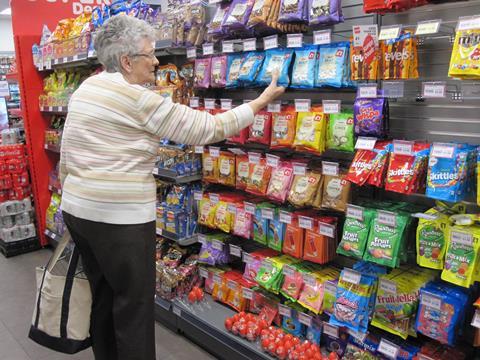
Proposed restrictions on high fat, salt and sugar (HFSS) products could impact one in every five purchases in convenience stores.
According to research revealed by Lumina Intelligence in its UK Convenience Market Report 2021, 19% of products purchased within convenience stores are picked up from areas that face HFSS restrictions.
The regulations, due to come into effect October 2022, mean that retailers would not be able to put HFSS products within two metres of a checkout area; within two metres of a designated queueing area; in an end of aisle display or of the entrance to the store. It would also have an impact on volume promotions such as multibuys and ‘buy one get one’ promotions for products deemed to be in scope of the HFSS regulations.
The Lumina Intelligence research found that three of the top five purchase locations (end of an aisle, front of the store and at the till) will be restricted under HFSS.
Impact on impulse
The study also found that of the top ten categories that shoppers purchase on impulse within convenience, seven of them are likely to be impacted by the new HFSS regulations.
| Category | % who bought this category on impulse |
|---|---|
|
Bakery |
11% |
|
Bakery (wrapped) |
10% |
|
Crisps & Snacks |
8% |
|
Soft Drinks |
8% |
|
Confectionery |
6% |
|
Carbonated soft drinks |
5% |
On the promotions side, Lumina’s report found that the four categories most commonly purchased on promotions will be impacted by the HFSS regulation:
| Category | % who bought on promotion |
|---|---|
|
Bakery |
7.3% |
|
Crisps & Snacks |
7.2% |
|
Soft Drinks |
6.2% |
|
Confectionery |
4.8% |
Key account lead at Lumina Intelligence Sophie Lane offered up advice for retailers. “Preparation is critical, with retailers needing to work closely with brands to create a solution that suits everyone and mitigates the risks posed by HFSS,” she said. “Alternative strategies such as introducing PMP lines, expanding meal deal and cross merchandising options outside of the usual three-item lunch deal will help retain lockdown shoppers and maintain value for money satisfaction ratings in convenience stores. PMPs are particularly important for impulse categories reassuring shoppers they are not being overcharged and helping retailers maintain their competitive edge over supermarkets and discounters. In total, 46% of convenience shoppers purchase PMP products.”
Lane added that brands will have to revise their marketing strategies. “For brands impacted by HFSS, strategies around shopper marketing will become even more crucial. How can you drive attention to your product within the main fixtures? For brands not impacted, how can you take advantage of any additional product placement opportunities? For retailers, how can they work with brands and open up alternative activation opportunities?”

























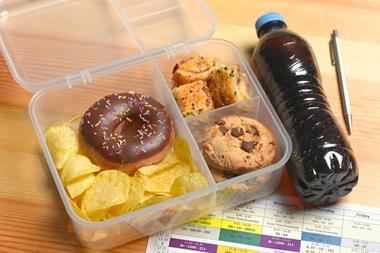

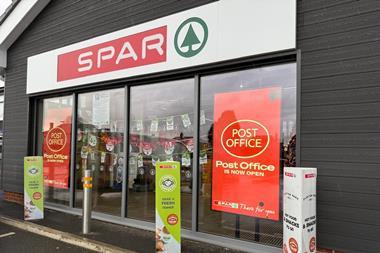


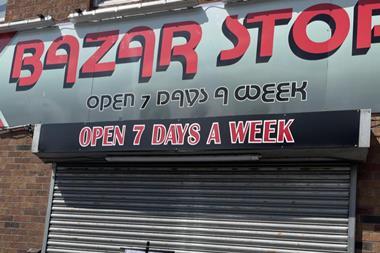
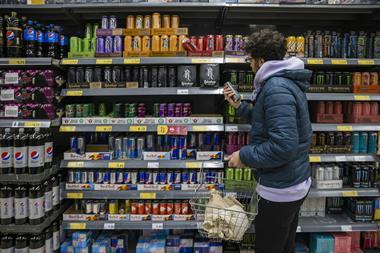

No comments yet